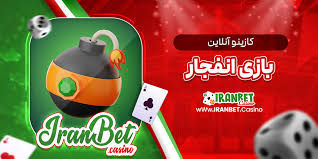Slot machines have been a staple in the gambling industry for over a century, captivating millions with their promise of instant winnings and excitement. From their mechanical origins to modern digital versions, slot machines have evolved koinplay, but their core appeal remains the same: the thrill of the spin and the potential for big payouts.
The Origins of Slot Machines
The first slot machine, known as the “Liberty Bell,” was invented by Charles Fey in 1895. It featured three spinning reels with five symbols: hearts, diamonds, spades, horseshoes, and a Liberty Bell. The machine’s simplicity and the potential for winning made it an instant hit. Fey’s Liberty Bell had a jackpot of 50 cents, a considerable sum at the time.
How Slot Machines Work
Modern slot machines can be divided into two main categories: mechanical and electronic.
- Mechanical Slots: These are the traditional, coin-operated machines with physical reels. When a player pulls the lever, the reels spin, and the outcome is determined by the alignment of symbols on the payline.
- Video Slots: With the advent of technology, video slots emerged, featuring computer screens instead of physical reels. These machines use random number generators (RNGs) to determine the outcome of each spin. RNGs ensure that each spin is independent and random, providing fair chances for all players.
Types of Slot Machines
- Classic Slots: Often referred to as “fruit machines” or “one-armed bandits,” these slots typically have three reels and a limited number of paylines. They are known for their straightforward gameplay and nostalgic appeal.
- Video Slots: These machines offer a wide range of themes, bonus features, and interactive elements. They often have five or more reels and multiple paylines, enhancing the complexity and excitement of the game.
- Progressive Slots: These slots are linked to a network of machines, and a portion of each bet contributes to a growing jackpot. The jackpot continues to increase until a lucky player hits the winning combination. Progressive slots offer the potential for life-changing winnings.
- Bonus Slots: These machines feature additional bonus rounds and mini-games that offer extra chances to win. The bonus features often align with the machine’s theme and can significantly enhance the overall gaming experience.
Slot Machine Odds and Payouts
Understanding the odds and payout percentages of slot machines is crucial for players. Slot machines are designed with a built-in house edge, meaning the odds are slightly tilted in favor of the casino. However, the exact odds can vary significantly between different machines and casinos.
- Return to Player (RTP): This percentage represents the amount of money a slot machine is programmed to pay back to players over time. For example, a slot with an RTP of 95% will return $95 for every $100 wagered, on average.
- Volatility: This refers to the risk level of a slot machine. High volatility slots offer larger but less frequent payouts, while low volatility slots provide smaller but more frequent wins.
Responsible Gambling and Slot Machines
While slot machines offer entertainment and the possibility of winning money, it is important to approach them responsibly. Gambling should be viewed as a form of entertainment rather than a way to make money. Setting limits on time and money spent, and being aware of the signs of problem gambling, can help ensure that gaming remains a fun and enjoyable experience.
Conclusion
Slot machines have come a long way from their mechanical beginnings, evolving into sophisticated digital games with diverse themes and features. Whether you’re drawn to the classic charm of traditional slots or the excitement of modern video slots, understanding how these machines work and their potential payouts can enhance your gaming experience. Remember to gamble responsibly and enjoy the thrill of the spin!


